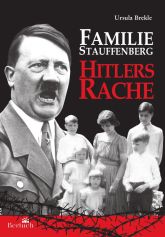The Death of Frederick the Great
Christoph WernerTranslation by Christoph Werner (Weimar, Thuringia) and Michael Leonard (Petaluma, California)
On the 24th of January 1712, 300 years ago, Frederick II of Prussia was born. The 2012 anniversary presents a good opportunity to remember not only the birth of this great king but also the circumstances of his death.
One of the most important duties of a monarch in a period of absolutism was to secure his succession in order to ensure the continuity and stability of the state. This forced him to consider his own end and think about what would happen after his death. He had to confront this problem because of the uncertain political and constitutional circumstances of a class state (Ständestaat) based on the participation of the estates in governing the country, which had developed in the 16th and 17th centuries. The only outcome the absolute sovereign could not control at his pleasure was succession. In the Danish Lex regia of 1655, which can be regarded as the Basic Law of European absolutism, it is only the succession to the throne which is excepted from the free decision of the absolute ruler. It states: "The king alone shall have the highest power to make laws and decrees after his own will and pleasure, to declare, change, extend, reduce them, even to abolish laws enacted by himself or his predecessors – the only exception being the dynastic succession, which as true foundation and basic law of the kingdom must by all means remain unchangeable and unshakable."
In contemplating his succession and his inevitable end Frederick found a cynical pleasure in ridiculing man’s fear of death. When a participant at the royal table opined that he would rather not know the time of his death in order not to increase the fear of death that would result, the king poured scorn and derision upon the unhappy man and accused him of a cowardly, doggish disposition. Of course the hierarchical order forbade the recipient of these remarks to defend himself adequately.
Frederick's last 20 years, following the end of the Seven Years' War in 1763, were characterized by illnesses and physical decay. Still, his intellect remained intact, as can be seen from what the Count of Mirabeau reported after having seen the king in April 1786: "One can hardly imagine a livelier spirit nor a more charming conversation."
Above all Frederick was plagued by gout that caused grinding pain and persistent paralysis, a hereditary curse of the Hohenzollern dynasty, which was not helped by Frederick's irrepressible appetite. In addition, he suffered from asthma and dropsy, which led to shortage of breath and swollen legs. The king, who believed himself to be an expert in almost everything, also wanted to be his own doctor and cure himself. This led to childish arguments and behavior, recounted in the memories of Johann Georg Ritter von Zimmermann, one of the most famous doctors of his time, who visited the king for the last time on June 24th, 1786. He was horrified by the conditions under which the king lived. In his last weeks Frederick wanted to see none of his relatives, not even his brother Henry or his nephew, the crown prince. He lived without guards, court or adjutant, only with a faithful valet, a former soldier. He could not lie in bed because of shortage of breath and had to sit day and night in an armchair where his valet tried to make breathing easier by supporting his back.
Zimmermann reports the following about a meal in the last weeks of Frederick's life:
"At two o'clock in the afternoon (that is on June 30th, 1786) a gentleman from the king's table party, coming directly from Sanssouci, visited me and brought bad news. During lunch the king had observed the rules that he had explained to me that very morning very badly. As always he had eaten a lot of soup, which, as usual, consisted of the strongest bouillon, pressed from the hottest things, but with the portion of soup which the king alone ate, he took a big spoon of ground nutmeg and pounded ginger. Then he had a sizeable piece of beef, prepared according to a Russian recipe, i. e. cooked in a quart of brandy. Then followed a large amount of an Italian dish, which is half made of corn and Parmesan cheese; added to this is juice pressed from garlic and then it is baked in butter until a hard and finger-thick crust forms; over all this one pours broth consisting of the hottest spices. Lord Marshal Keith, a confidant of the king, had recommended this recipe, which was changed and adapted to the king's taste. It is called polenta. Finally the king, praising his excellent appetite which he ascribed to the dandelion mash (which Zimmermann had prescribed him as a medicine for his ailments) finished his meal with a big plate of eel pastry, which was so hot and heavily spiced that it seemed to have been cooked in hell, as the king's gentleman told me and my wife."
Even the most ardent supporter of the Prussian king will probably feel no pity for him in view of such voracious folly. On August 10th 1786 the king wrote his sister, Philippine Charlotte, Duchess of Brunswick: "My adored sister, the Hanoverian doctor only wanted to tell you that he had done his best, dear sister, but the truth is that he could not help me. The old must make room for the young so that each age may find its place; and if one thinks properly what life is so it is nothing except that one sees one's contemporaries die and be born ..." This is a rather melancholic and pessimistic resume of life and probably more the result of a momentary mood marked by illness and pain than the quintessence of Frederick's enlightened philosophy. The end of the king became inevitable considering his workload, the neglect of his health and, not the least, his eating habits. During the night of the 16th or the early morning of the 17th of August 1786 he died in the arms of his valet, who had tried continuously to support him in order to make breathing easier. Eye witnesses reported that at the end he sighed: „La montagne est passée, nous irons mieux.” (The mountain has been passed over, now it will be easier).
There was a curious atmosphere after his death, as if many felt relief. Mirabeau wrote: "Everything is gloomy, nobody is sad, everything is busy, nobody is distressed. No face that does not betray relief and hope, no regret, no word of praise. So many battles won, so much fame, a rule of almost half a century, filled with so many great deeds – and such an end to life. Everybody wanted it to end, everybody is glad about it."
Against his explicit wishes Frederick was not buried on the terrace of Sanssouci besides his dogs but, on the order of his successor, Frederick William II, in the vault of the Garrison Church in Potsdam besides his father. At last on the 17th of August 1991 his remains, which had been removed in the war, found their resting place on the terrace of Sanssouci as he had wanted it.
******
Picture: Anton Graff "Friedrich II. (der Große), König von Preußen, im Alter von 68 Jahren"; gemeinfrei, wikipedia





